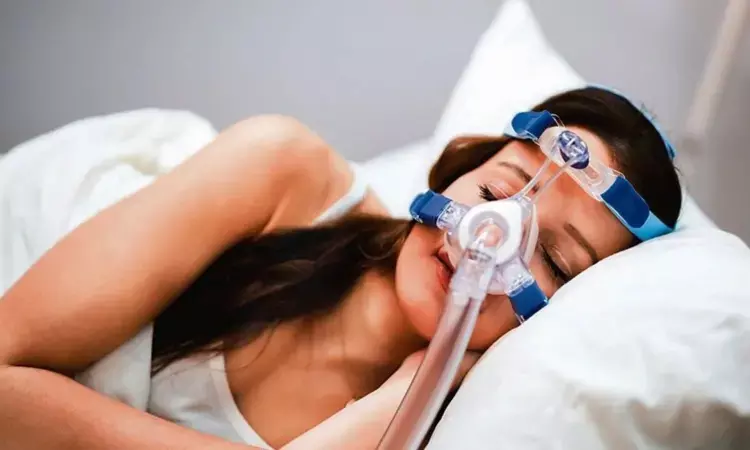- Home
- Medical news & Guidelines
- Anesthesiology
- Cardiology and CTVS
- Critical Care
- Dentistry
- Dermatology
- Diabetes and Endocrinology
- ENT
- Gastroenterology
- Medicine
- Nephrology
- Neurology
- Obstretics-Gynaecology
- Oncology
- Ophthalmology
- Orthopaedics
- Pediatrics-Neonatology
- Psychiatry
- Pulmonology
- Radiology
- Surgery
- Urology
- Laboratory Medicine
- Diet
- Nursing
- Paramedical
- Physiotherapy
- Health news
- Fact Check
- Bone Health Fact Check
- Brain Health Fact Check
- Cancer Related Fact Check
- Child Care Fact Check
- Dental and oral health fact check
- Diabetes and metabolic health fact check
- Diet and Nutrition Fact Check
- Eye and ENT Care Fact Check
- Fitness fact check
- Gut health fact check
- Heart health fact check
- Kidney health fact check
- Medical education fact check
- Men's health fact check
- Respiratory fact check
- Skin and hair care fact check
- Vaccine and Immunization fact check
- Women's health fact check
- AYUSH
- State News
- Andaman and Nicobar Islands
- Andhra Pradesh
- Arunachal Pradesh
- Assam
- Bihar
- Chandigarh
- Chattisgarh
- Dadra and Nagar Haveli
- Daman and Diu
- Delhi
- Goa
- Gujarat
- Haryana
- Himachal Pradesh
- Jammu & Kashmir
- Jharkhand
- Karnataka
- Kerala
- Ladakh
- Lakshadweep
- Madhya Pradesh
- Maharashtra
- Manipur
- Meghalaya
- Mizoram
- Nagaland
- Odisha
- Puducherry
- Punjab
- Rajasthan
- Sikkim
- Tamil Nadu
- Telangana
- Tripura
- Uttar Pradesh
- Uttrakhand
- West Bengal
- Medical Education
- Industry
Nasal obstruction tied to resistant hypertension in patients with uncontrolled hypertension and OSA

China: A recent study has revealed that nasal obstruction is linked with the risk of resistant hypertension (RH) in patients with uncontrolled hypertensive patients and obstructive sleep apnea (OSA). The study was featured in the European Archives of Oto-Rhino-Laryngology on 10 December 2022.
The findings imply that in addition to the OSA treatment, the evaluation and treatment of nasal obstruction should be considered in managing uncontrolled hypertensive patients with OSA.
Hao Wu from Capital Medical University in Beijing, China, and colleagues conducted the study to establish the independent predictive role of nasal obstruction in resistant hypertension among uncontrolled hypertensive patients with obstructive sleep apnea.
For this purpose, the researchers conducted a prospective cohort study of 236 OSA patients with uncontrolled BP using 1 or 2 antihypertensive drugs visiting the Sleep Medicine Center. Information was collected on various parameters, including BP control and classes of antihypertensive drugs, comorbidities, demographic characteristics, sleep parameters, Nasal Obstruction Symptom Evaluation (NOSE) Scale, and sleep-related symptoms. The incidence of resistant hypertension according to BP control and classes of antihypertensive medications data was collected during the 5-month follow-up.
The authors reported the following findings:
- After five month's follow-up, 217 participants were included in the final data analysis.
- Ninety-five patients had nocturnal nasal obstruction with a more significant proportion of RH (36.8% vs 17.2%) than those without nocturnal nasal obstruction.
- Following adjustments for OS severity, demographic characteristics and sleep-related symptoms, multinomial logistic regression models revealed that nocturnal nasal obstruction (all ORs > 2.5) or NOSE ≥ 8 (all ORs > 4.5) was independently associated with higher odds of RH.
- Nasal obstruction treatment improved the NOSE score significantly but did not considerably reduce RH incidence.
- Effective nasal obstruction treatment was linked with antihypertensive drug reduction (OR 4.43).
"In uncontrolled hypertensive patients with OSA, nasal obstruction seemed to be an independent predictor of resistant hypertension," the authors wrote."
"In addition to OSA treatment, assessment and treatment of nasal obstruction should be considered in managing uncontrolled hypertensive patients with OSA."
Reference:
Wu, H., Xie, J., Guo, Y. et al. The independent role of nasal obstruction in resistant hypertension for uncontrolled hypertensive patients with obstructive sleep apnea. Eur Arch Otorhinolaryngol (2022). https://doi.org/10.1007/s00405-022-07772-2
Dr Kamal Kant Kohli-MBBS, DTCD- a chest specialist with more than 30 years of practice and a flair for writing clinical articles, Dr Kamal Kant Kohli joined Medical Dialogues as a Chief Editor of Medical News. Besides writing articles, as an editor, he proofreads and verifies all the medical content published on Medical Dialogues including those coming from journals, studies,medical conferences,guidelines etc. Email: drkohli@medicaldialogues.in. Contact no. 011-43720751


